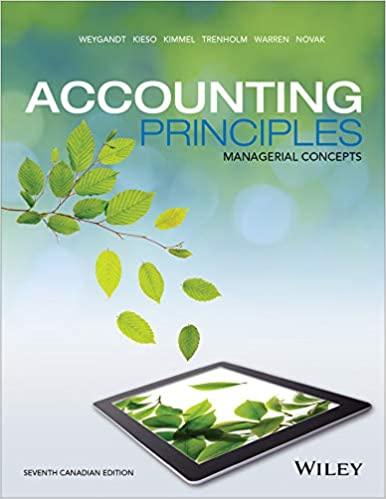Question
Using Excel 1. You invest $3,000 in a Certificate of Deposit paying an annual compound interest of 1.26% for 10 years and then move it
Using Excel
1. You invest $3,000 in a Certificate of Deposit paying an annual compound interest of 1.26% for 10 years and then move it into a savings account that pays 0.70% interest compounded annually. What is the final balance in your account at the end of 18 years?
10 years
18 years
2. You purchase an investment property for $150,000, make $30,000 in repairs, and then refinance the loan. You agree to a 15 year loan at 2.5% interest on the unpaid balance. What will be the amount of each monthly principle and interest payment?
3. Using the CAPM, estimate the appropriate required rate of return for the three stocks listed here, given that the risk free rate is 0.78%, and the expected return for the market is 6% for the coming year.
| Stock | Beta | CAPM | = Rf + B*(Rm-Rf) | Return | |||||||
| Pfizer | 0.66 | E(Rm)= | 6.0% | ||||||||
| Merck | 0.43 | RF= | 0.78% | ||||||||
| Eli Lilly | 0.27 |
4. Eli Lilly bonds have an annual coupon rate of 5.55% and a par value of $1,000 and will mature in 17 years. If you require a 5 percent return, what price would you be willing to pay for a Eli Lilly bond?
5. Pfizer bonds are selling in the market for $1095.60. These 8 year semi-annual bonds pay 3.6% on an annual basis on a $1,000 par value. If the bond is purchased at market price, what is the bond's yield to maturity?
Semi-Annual rate
Annualized Rate
Annual Rate (not semi-annual)
6. Suppose one of the suppliers to the Baylor Scott & White Health System offers terms of 4/10, net 30.
[a]. How many days does the business have to pay its bill from this supplier in order to get the discount?
[b]. What is the approximate cost of the costly trade credit offered by this supplier?
| Approximate % cost = Discount percent X 360 | ||||||
| 100 - Discount percent Days credit received - Discount period | ||||||
| Discount percent | ||||||
| Days credit received | ||||||
| Days of free trade credit | ||||||
| Periodic cost of trade credit | ||||||
| Number of discount periods per year | ||||||
| Approximate % cost |
7. The capital structure for Capital Health is provided below. If the firm has a 8% after tax cost of long term debt, 12% commercial loan rate, 6% commercial paper rate, short term bond rate of 5%, a 9% cost of preferred stock, and an 15% cost of common stock, what is the firm's weighted average cost of capital (WACC)?
| #2 | #3 | |||||||
| Capital Structure (in K's) | Weights | Individual Costs | Weighted Costs | |||||
| Long Term Bonds | $ 3,000 | 8.00% | ||||||
| Commercial Loans | $ 2,845 | 12.00% | ||||||
| Commercial Paper | $ 1,500 | 6.00% | ||||||
| Short Term Bonds | $ 1,200 | 5.00% | ||||||
| Preferred Stock | $ 500 | 9.00% | ||||||
| Common Stock | $ 4,500 | 15.00% | ||||||
| #1 | = | #4 | =WACC |
8. You are considering buying a new laboratory blood analysis system that will require an initial outlay of $80,000. The system has an expected useful life of 5 years and will generate free cash flows to the hospital as a whole of $15,000 at the end of each year over its 5 year life. In addition, the salvage value of the system is expected to be $10,000 based on current market conditions. Given a required rate of return of 12 percent, determine the following:
| Year | Cash Flow | Cumulative | |||||||
| [a] Payback Period | 0 | $ (80,000) | $ (80,000) | ||||||
| [b] NPV | 1 | $ 15,000 | $ (65,000) | ||||||
| [c] IRR | 2 | $ 15,000 | $ (50,000) | ||||||
| [d] Should this project be accepted? | 3 | $ 15,000 | $ (35,000) | ||||||
| 4 | $ 15,000 | $ (20,000) | |||||||
| 5 | $ 25,000 | $ 5,000 |
9. HCA dispenses 55,000 bottles of brand name pharmaceutical annually. The optimal safety stock (which is on hand initially) is 1,000 bottles. Each bottle costs the center $2, inventory carrying costs are 10%, and the cost of placing an order with its supplier is $20.
[a] What is the economic order quantity? (EOQ)
[b] What is the maximum inventory for this medication?
[c] How often must the center order (in days)? (Average daily usage & reorder frequency)
[d] How many orders of this pharmaceutical will need to be placed each year? (orders per yr)
| Ordering costs | F | $20 | |
| Annual usage in units | S | 55,000 | |
| Annual carrying costs | C | 10% | |
| Purchase price per bottle | P | $2.00 | |
| Days per year | W | 360 | |
| Safety stock | SF | 1,000 |
Step by Step Solution
There are 3 Steps involved in it
Step: 1

Get Instant Access to Expert-Tailored Solutions
See step-by-step solutions with expert insights and AI powered tools for academic success
Step: 2

Step: 3

Ace Your Homework with AI
Get the answers you need in no time with our AI-driven, step-by-step assistance
Get Started


